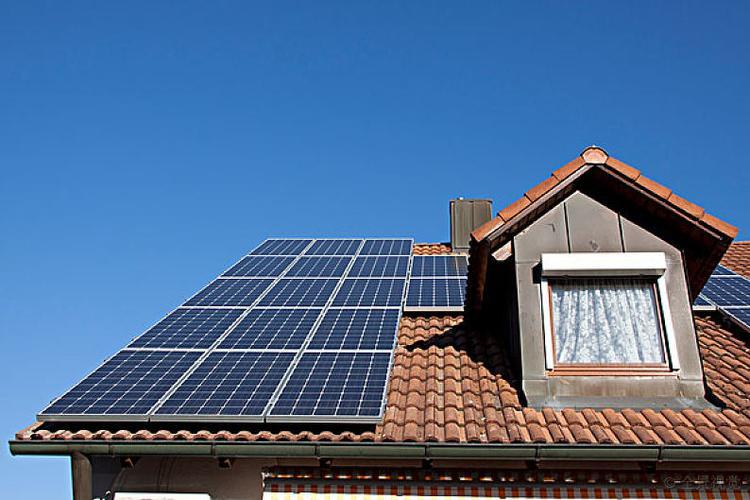What Does "Off the Grid" Mean? A Comprehensive Guide
In today's world, "off the grid" living has become an increasingly popular choice for those seeking independence, sustainability, and a closer connection to nature. But what exactly does it mean to live off the grid? In this blog post, we will explore the concept of off-grid living, its benefits, challenges, and the role of renewable energy in making this lifestyle possible.
What is Off-Grid Living?
"Off the grid" refers to a lifestyle in which individuals or households operate independently of public utilities. This means not relying on the traditional power grid, municipal water supplies, or waste management systems. Instead, off-grid living involves generating your own power (usually through solar panels or wind turbines), collecting and purifying your own water, and managing your own waste.
This lifestyle is often associated with self-sufficiency, eco-friendliness, and the desire to disconnect from the conventional urban infrastructure. Off-grid living is becoming increasingly viable, thanks to advances in renewable energy and sustainable technologies.
Key Components of Off-Grid Living
1. Energy Independence:
One of the main aspects of off-grid living is generating your own electricity. Many off-grid homes rely on solar power, wind energy, or hydroelectric systems. Solar panels are a popular choice for providing energy for lighting, heating, and electrical appliances.
2. Water Collection and Storage:
Off-grid homes must also ensure they have access to clean water. Rainwater harvesting systems are commonly used to collect and store water for household use. Additionally, wells or natural water sources may be used if available.
3. Waste Management:
Without access to a municipal sewage system, off-grid living requires homeowners to manage their own waste. This can be done through composting toilets, septic systems, or other waste treatment methods.
4. Food Production:
Many off-grid dwellers grow their own food, reducing their reliance on grocery stores and commercial agriculture. This not only ensures a sustainable food source but also minimizes the environmental impact associated with food transportation.
Benefits of Off-Grid Living
1. Environmental Impact:
Off-grid living can significantly reduce your carbon footprint. By using renewable energy sources like solar or wind, you are not dependent on fossil fuels. This lifestyle also promotes sustainable practices like water conservation and waste reduction.
2. Financial Savings:
While setting up an off-grid system can be costly upfront, it can lead to significant savings in the long term. Without monthly electricity or water bills, off-grid homeowners enjoy more predictable expenses and greater financial freedom.
3. Self-Sufficiency and Independence:
Off-grid living fosters a sense of self-reliance. By producing your own energy and food, you have more control over your lifestyle and less reliance on external systems. This independence can be empowering and fulfilling.
4. Privacy and Freedom:
Living off the grid often means being in a more remote or secluded location, offering privacy and freedom from the constraints of urban life. For many, this offers peace and tranquility away from the hustle and bustle of modern society.
Challenges of Off-Grid Living
1. Initial Setup Costs:
Setting up an off-grid home requires significant upfront investment. Solar panels, wind turbines, water collection systems, and energy storage solutions can be expensive. However, the long-term savings often outweigh these initial costs.
2. Maintenance and Troubleshooting:
Off-grid systems require ongoing maintenance. Solar panels need to be cleaned, batteries may need replacing, and water systems must be maintained. Troubleshooting these systems requires technical knowledge or professional help, which can be challenging for some.
3. Limited Access to Services:
Off-grid living means less access to public services such as healthcare, education, and public infrastructure. For those living in remote areas, this may involve long travel distances to reach essential services.
4. Weather and Environmental Dependencies:
Off-grid systems are dependent on weather conditions. Solar energy production can be affected by cloudy days, while wind turbines may not generate power without sufficient wind. This can lead to periods of energy scarcity, making reliable energy storage systems crucial.
Off-Grid Technology: Making It Easier
Recent advancements in technology have made off-grid living more accessible and sustainable. For example:
- Solar Power Systems:
Modern solar panels are more efficient and affordable than ever. With the ability to store excess energy in batteries, off-grid homes can remain powered even during cloudy or dark days.
- Energy Storage Solutions:
Energy storage systems like lithium-ion batteries have revolutionized off-grid living. They allow excess energy to be stored for use during times when the sun isn't shining or the wind isn't blowing.
- Water Filtration and Harvesting:
Advanced water filtration systems ensure that off-grid homes have access to clean, potable water. Similarly, rainwater harvesting systems have become more efficient and easier to install, making it easier to collect and store water.
- Wind and Hydro Energy:
Wind turbines and small hydroelectric systems can complement solar energy, providing additional sources of power in areas with consistent wind or water flow.
Conclusion
Living off the grid is not just a trend but a sustainable and eco-conscious lifestyle choice. It offers greater independence, environmental benefits, and long-term financial savings, although it comes with its own set of challenges, particularly in terms of setup costs and maintenance. As technology continues to evolve, off-grid living is becoming increasingly feasible and attractive for those seeking a more self-sufficient, sustainable, and peaceful way of life.
If you're considering off-grid living, it's important to evaluate your energy, water, and waste management needs, as well as the location where you plan to set up your off-grid home. With the right preparation, off-grid living can be a rewarding and fulfilling experience.
Next:How Often to Clean Solar Panels and What It Costs
Previous:How to Choose Between Dry-Type and Oil-Type Transformers?
